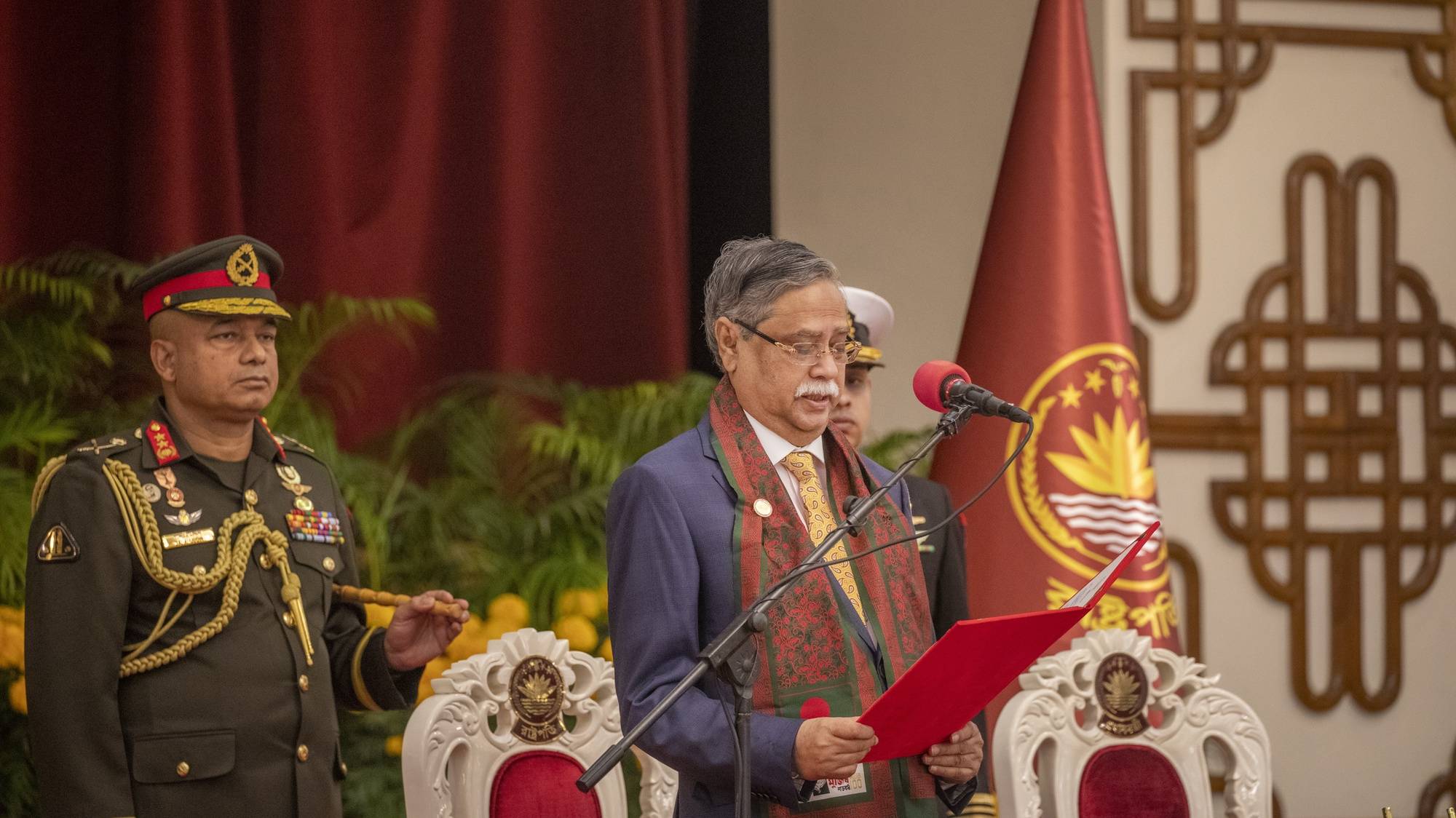Mohammed Shahabuddin dissolved the Bangladeshi parliament following student protests. More than 400 people died during the protests, 99 on Monday alone.
Bangladeshi President Mohammed Shahabuddin dissolved parliament on Tuesday, a presidential spokesman said, meeting expectations of a student protest movement that forced Prime Minister Sheikh Hasina to resign and flee the country.
“The president has dissolved parliament,” Shiplu Zaman said in a statement, thus opening the door to the formation of a new interim government, a day after Hasina went into exile in India, following weeks of violent protests in the streets of Bengal, which led to the deaths of more than 400 people.
“Following President Shahabuddin’s meeting with the heads of the three defence forces, various political leaders, representatives of civil society and leaders of the ‘Students Against Discrimination’ movement, the parliament was dissolved,” the same press release said.
Shahabuddin accepted the ultimatum of the leaders of the student protests, who had set a deadline of 3 pm local time (10 am in Lisbon) for the dissolution of Parliament.under penalty of tightening its agenda.
Student protests, which turned violent in mid-July, plunged the country into chaos and led to Hasina’s resignation. He spent 15 years in power..
Dissolution is a fundamental requirement to allow the formation of a provisional governmentBangladesh Army Chief Waker-Uz-Zaman announced in a statement on Monday confirming the Prime Minister’s resignation and departure from the country. The move also opens the door to legislative elections within three months.
The composition of the new interim government is still unknown, although student leaders have proposed the name of Nobel Peace Prize winner Muhammad Yunus to lead the transition process, a mission that the laureate has confirmed he accepts.
The provisional government will give priority to restoring public order on the streetsThe country experienced its deadliest day since student protests began a month ago to demand the repeal of a quota system for public employment and ended with Hasina’s resignation following brutal repression of the demonstrations.
According to the Spanish agency EFE, at least 99 people were killed in the last dayduring clashes and violent incidents, including setting fire to several buildings associated with Hasina’s political party, the Awami League.
The death toll since the protests began in early July has exceeded 400.
Meanwhile, former Prime Minister and opposition leader in Bangladesh, Khaleda Zia, sentenced in 2018 to 17 years in prison for corruption, was released on Tuesday, said the spokesman of the Bangladesh Nationalist Party (BNP, opposition), a day after the army took control of the country.
“[Zia, a grande rival de Hasina] “He is now free,” party spokesman AKM Wahiduzzaman told French news agency AFP, less than 24 hours after Bangladeshi President Mohammed Shahabuddin ordered his release.
On Tuesday, in the country’s capital, Dhaka, mothers of some of the hundreds of political prisoners arbitrarily detained during the Hasina regime waited outside the military secret services’ gates, awaiting news.
“We need answers,” said Sanjida Islam Tulee, coordinator of the “Mayer Daak” (“Mothers’ Call”) movement, which campaigns for the release of those detained by Hasina’s security forces.
Meanwhile, Bangladesh’s main police union announced on Tuesday that it will go on strike.
“Until the safety of all police personnel is ensured, we will declare a strike,” the Bangladesh Police Association, which represents thousands of senior officers, wrote in a statement.
In the same press release, union leaders asked for “forgiveness” for having shot at students, claiming that they had been forced to open fire.
The situation remains calm in Dhaka, where although traffic has resumed and shops have reopened, government offices remain closed.
On Monday, following Waker-Uz-Zaman’s speech, thousands of Bengalis took to the streets of Dhaka. Protesters stormed parliament, set fire to offices of pro-government television channels and smashed statues of the former prime minister’s father, Sheikh Mujibur Rahman, a hero of the country’s independence.
Offices of Hasina’s Awami League party were burned and looted across the country, witnesses told AFP.
Shops and homes belonging to Hindus, a group seen by some in this Muslim-majority country as close to Hasina, were also attacked, witnesses said.
India, for its part, said on Tuesday that it was “deeply concerned” by the crisis in neighbouring Bangladesh.
Indian External Affairs Minister Subrahmanyam Jaishankar told parliament he would remain “deeply concerned until law and order is clearly restored,” confirming Sheikh Hasina’s presence in India.
According to an official spokesman, Hasina is “passing through” the country on her way to London. However, the British government’s call for a UN inquiry into “unprecedented levels of violence” in Bangladesh has cast doubt on the possibility of this happening.
Source: Observadora
